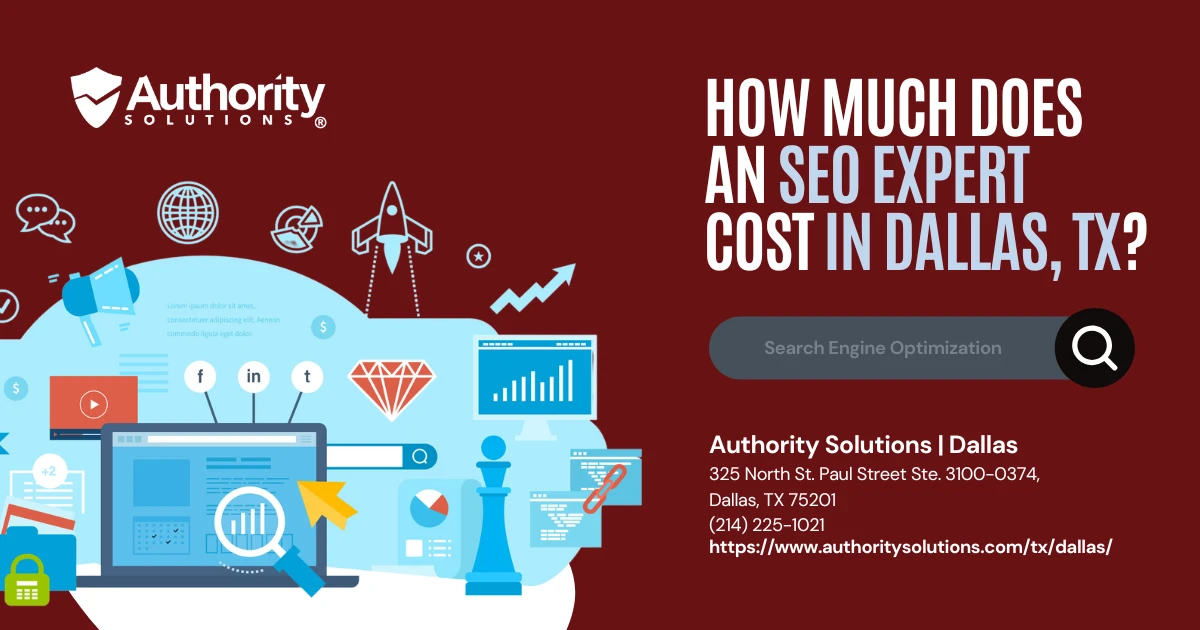The Future Of Ai In Digital Marketing: Embracing Automation And Personalization (Ai In Marketing, Automated Campaigns)
Are you curious about the future of digital marketing? As technology advances at an unprecedented rate, it's no surprise that artificial intelligence (AI) is revolutionizing the way marketers approach their campaigns. The integration of AI in digital marketing has not only streamlined processes but also allowed for personalization at scale.
In this article, we'll explore the power of AI in digital marketing and how automation and personalization are changing the game. We'll discuss the challenges that come with implementing AI strategies and how to overcome them. Furthermore, we'll give you a glimpse into what the future holds for AI in digital marketing and how it can help you achieve your business goals. With this information, you can take control of your marketing strategy and stay ahead of the competition.
The Power of AI in Digital Marketing
You're gonna love how AI can supercharge your digital marketing efforts! With the power of artificial intelligence, you can analyze data from multiple sources to gain insights into consumer behavior and preferences. This information can then be used to create targeted and personalized campaigns that are more likely to convert leads into customers.
AI also enables you to automate repetitive tasks such as sending emails, managing social media accounts, and collecting customer feedback. As a result, you'll have more time to focus on strategic planning and creative tasks that require human input. By embracing AI in your digital marketing strategy, you'll not only save time but also enhance the effectiveness of your campaigns. Now let's explore how automation can further streamline your marketing efforts.
Embracing Automation in Marketing
You can improve the efficiency of your marketing efforts by embracing automation. Streamlining repetitive tasks such as scheduling social media posts or sending out email campaigns will free up time for more creative endeavors. Case studies have shown successful implementation of AI in various industries, including marketing, leading to increased productivity and better ROI.
Streamlining Repetitive Tasks
By streamlining repetitive tasks with automation, you'll be able to focus on creating personalized experiences for your customers. This means that you won't have to waste time and resources on menial tasks like data entry or social media scheduling. Instead, you can invest your energy in understanding your customers' needs and preferences, tailoring your marketing efforts accordingly.
To truly take advantage of automation in this way, consider the following:
- Identify the most repetitive tasks in your workflow
- Determine which tools can help automate these processes
- Train yourself and your team to use these tools effectively
By doing so, not only will you improve efficiency, but also create more meaningful connections with your audience. In the next section, we'll explore how AI can further improve efficiency in digital marketing.
Improving Efficiency with AI
To make the most out of your time and resources, it's essential to explore how AI can help improve efficiency in your digital marketing efforts. With automated data analysis, you can save countless hours of manual work while gaining valuable insights into customer behavior. AI algorithms can process large sets of data to identify patterns and trends that would otherwise take a human analyst weeks or even months to uncover.
Moreover, AI-powered tools can help you optimize your ad campaigns by testing different variations and targeting options in real-time. By constantly learning from user feedback and adjusting accordingly, these systems can significantly increase the effectiveness of your marketing strategies. With improved efficiency comes increased ROI, making automation an attractive option for businesses looking to stay ahead of the curve in today's fast-paced digital landscape. And as we'll see in the next section, many companies have already achieved remarkable results using these cutting-edge technologies.
Case Studies of Successful Automation
Get ready to be inspired by real-world examples of how businesses are using automation to achieve impressive results in their marketing efforts. One such example is HubSpot, a popular inbound marketing platform that uses AI-powered chatbots to automate customer service inquiries. By implementing this technology, they were able to reduce response time from two hours to mere seconds, resulting in an increased customer satisfaction rating and better overall engagement.
Another successful implementation of automation can be seen with Air Asia, a Malaysian airline company that embraced AI for its social media strategy. Through the use of automated campaigns and chatbots, Air Asia was able to personalize their communication with customers and provide relevant offers based on their travel history. This resulted in a 40% increase in revenue from social media channels alone! These case studies show us that the benefits of automation go beyond just improving efficiency; it allows businesses to deliver personalized experiences at scale and achieve remarkable results.
Now let's dive into how personalization through AI is revolutionizing the world of digital marketing.
Get found online with Authority Solutions®' SEO.
Personalization through AI
Using AI for personalized marketing is like having a virtual concierge tailor the experience to each individual customer. With AI, you can analyze vast amounts of data to understand your customers' behavior, preferences, and needs. This allows you to create customized marketing campaigns that speak directly to each person, increasing engagement and loyalty.
To fully embrace personalization through AI, there are some essential things you need to consider:
- Start with the right data: To create personalized campaigns, you need access to accurate and relevant customer data.
- Use segmentation: Divide your customers into smaller groups based on shared characteristics or interests.
- Automate your processes: You should use automation tools that allow you to send targeted messages at the right time without manual intervention.
- Continuously test and optimize: Personalization is an ongoing process, and it's important always to measure results and tweak strategies accordingly.
By leveraging these best practices for personalization through AI in digital marketing campaigns, businesses can improve customer satisfaction while generating more revenue. However, implementing AI-powered personalization also comes with challenges that must be addressed before reaping its benefits fully.
Overcoming Challenges with AI
As you delve into the topic of overcoming challenges with AI, you will come across three key points that need to be addressed. Firstly, data privacy concerns are a major challenge that needs to be handled effectively. Secondly, maintaining human interaction is crucial despite the automation brought about by AI. Lastly, ethical issues surrounding the use of AI must be addressed to ensure its responsible and fair application in digital marketing.
Data Privacy Concerns
You may be concerned about your data privacy as AI becomes more prevalent in digital marketing campaigns. With companies collecting vast amounts of consumer data, there is a risk that this information could fall into the wrong hands or be used for nefarious purposes. Additionally, algorithms used by AI systems could potentially make decisions based on biased or inaccurate data, leading to further issues with privacy and discrimination.
However, it's important to note that many companies are taking steps to ensure the privacy and security of user data. This includes implementing encryption technologies, anonymizing user data when possible, and providing transparency about how user data is being collected and used. As AI technology continues to develop in the digital marketing space, it will be crucial for companies to prioritize ethical practices and consumer trust in order to maintain successful campaigns that benefit both businesses and consumers alike.
Transitioning into the subsequent section about maintaining human interaction: While AI certainly has its benefits in terms of automating certain tasks and personalizing marketing efforts, it's also important not to lose sight of the value of human interaction in these campaigns.
Maintaining Human Interaction
Maintaining a human touch in marketing efforts is crucial for building long-term relationships with customers and creating a sense of trust and authenticity. While automation has revolutionized the way we do marketing, it is important not to forget that customers still want to feel connected to the brand on a personal level. Here are three ways you can maintain human interaction in your digital marketing strategy:
- Personalize communication: Use customer data to tailor your messaging and show that you value their individual preferences.
- Provide exceptional customer service: Respond promptly to inquiries and complaints, and go above and beyond to ensure customer satisfaction.
- Incorporate user-generated content: Share posts created by customers who have had positive experiences with your brand, as this creates a sense of community.
Addressing ethical issues in AI-powered marketing may seem daunting, but it is essential for maintaining consumer trust in the long run.
Addressing Ethical Issues
Addressing ethical concerns in our marketing efforts is crucial for building and maintaining trust with our customers. As we incorporate AI into our digital marketing strategies, it's important to consider the potential biases and implications that can arise. We must ensure that we prioritize the well-being of our customers over profits by being transparent about how their data is being used and giving them control over their own information.
One major ethical concern is privacy. With AI, we have access to more data than ever before, but this also means that there's a greater risk of data breaches or misuse. It's important to implement proper security measures and be transparent with customers about what data we're collecting and how it will be used. Additionally, as AI becomes more sophisticated, there's a risk of perpetuating harmful stereotypes or discrimination if algorithms are not designed carefully. We must constantly monitor and review our AI systems to make sure they align with our values and don't negatively impact any groups of people.
As we navigate these ethical concerns in AI, it's important to keep in mind the benefits that automation can bring to digital marketing campaigns – such as personalized experiences for each customer based on their preferences and behaviors – while also balancing those benefits against any potential harm caused by lack of transparency or bias in decision making processes.
The Future of AI in Digital Marketing
Imagine a world where AI seamlessly integrates with digital marketing, allowing for personalized and automated campaigns that effortlessly capture the attention of your target audience. The future of AI in digital marketing is rapidly approaching, and it promises to revolutionize the way businesses reach their customers. With the help of AI-powered tools, marketers will be able to deliver highly targeted content that resonates with individual consumers on a deeper level.
Automated campaigns powered by AI will allow businesses to create hyper-personalized experiences for each customer, at scale. Through machine learning algorithms and predictive analytics, these campaigns will be able to anticipate consumer needs and preferences before they even realize them themselves. This type of automation also frees up valuable time for marketers to focus on other tasks such as strategy development and creative content creation. As we move towards the future of AI in digital marketing, the possibilities are endless - but one thing is certain: those who embrace this technology early on will have a significant advantage over their competitors.
Frequently Asked Questions
What are the ethical considerations surrounding the use of AI in digital marketing?
When using AI in digital marketing, ethical considerations include transparency about data collection and use, avoiding bias and discrimination in targeting, and protecting consumer privacy. It's important to prioritize the well-being of consumers over profits.
How can small businesses without large budgets implement AI in their marketing strategies?
To implement AI in your marketing strategy, start by identifying areas where automation can improve efficiency. Use low-cost tools like chatbots and predictive analytics to personalize messaging and increase conversion rates. Monitor results and adjust as needed for optimal performance.
What impact will AI have on traditional marketing roles and job responsibilities?
AI will change traditional marketing roles and job responsibilities by automating tasks, allowing marketers to focus on strategy and creativity. It will increase efficiency, improve customer experience, and eventually require new skills for professionals to adapt.
How can companies ensure the data used to train AI models is unbiased and representative?
To ensure unbiased data for AI models, use diverse datasets, remove identifiers, and audit algorithms. Ensure transparency in model development, testing, and deployment. Continuously monitor for biases during model operation to maintain accuracy and fairness.
Are there any regulations or laws in place to govern the use of AI in digital marketing, and how might they change in the future?
Regulations and laws governing the use of AI in digital marketing vary by country. In the US, the Federal Trade Commission has issued guidelines for transparency and fairness. Expect more regulations as AI becomes more prevalent.
Conclusion
In conclusion, the future of AI in digital marketing is a promising one. The power of AI has already been proven to be effective in automating campaigns and personalizing experiences for customers. By embracing automation in marketing, businesses can save time and resources while delivering consistent messaging across all channels.
Moreover, the ability to personalize through AI enables marketers to create tailored experiences for each customer, leading to higher engagement and conversions. However, it's essential to overcome challenges with AI such as data privacy concerns and algorithm bias. As technology continues to evolve, it's crucial for businesses to stay up-to-date with the latest advancements in AI and implement them strategically.
Overall, incorporating AI into digital marketing strategies can lead to more efficient processes and improved customer experiences. With careful consideration and implementation, businesses can leverage this technology to stay ahead of their competition and meet the ever-changing demands of consumers in today's digital age.






